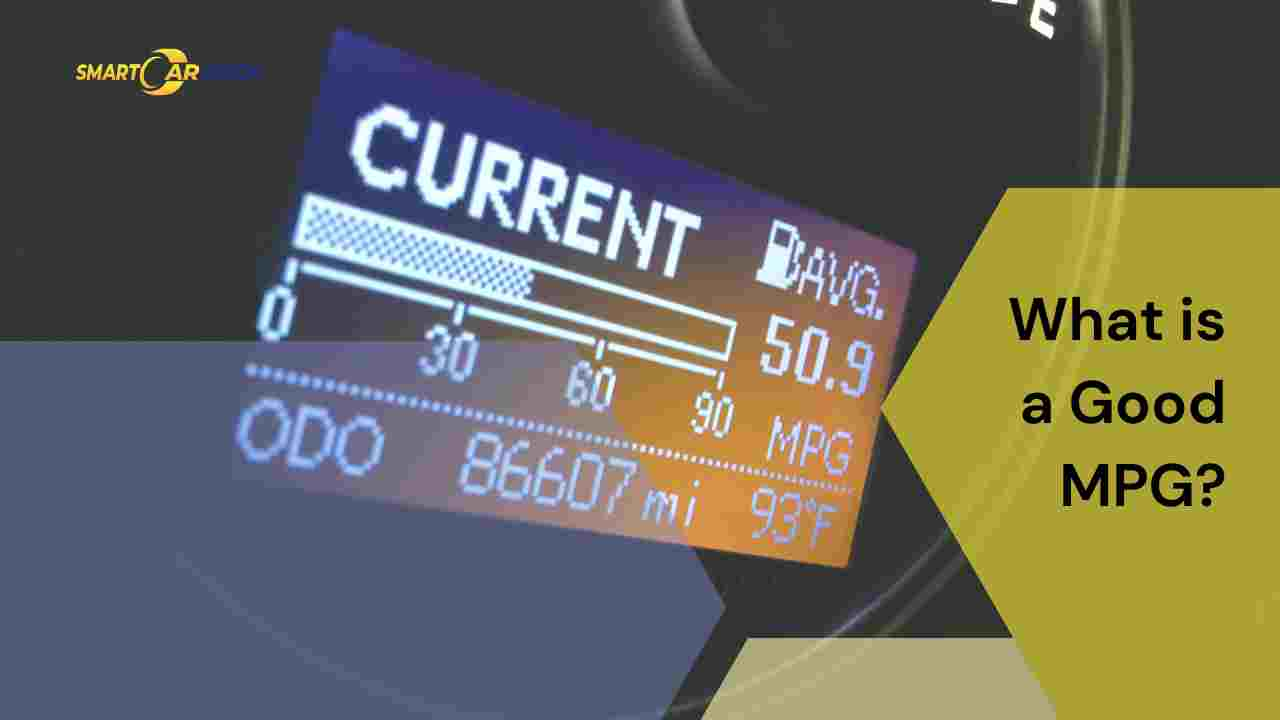When it comes to buying a car, one big question looms: “What is a good MPG?” Fuel efficiency affects your wallet and the environment. If you choose a car with low MPG, you’ll spend more on fuel and contribute to pollution. On the other hand, a car with a good MPG helps you save money and reduces your carbon footprint.
The challenge is knowing what MPG is considered good and how to find vehicles that meet your needs. Don’t worry! This article breaks it down and provides tips to check MPG ratings so you can make informed choices.
What Does MPG Stand For?
MPG stands for “miles per gallon.” This metric measures how far a vehicle can travel on one gallon of fuel. Knowing the MPG helps you gauge a car’s fuel efficiency. Higher MPG means better efficiency, while lower MPG indicates more frequent trips to the petrol station.
In practical terms, MPG can help you budget fuel expenses. A car that gets 40 MPG will allow you to travel further on the same amount of petrol compared to one that only achieves 20 MPG. This difference can add up quickly, especially for those who drive long distances regularly.
What is a Good MPG for a Car?
So, what should you consider a good MPG? Generally, anything above 40 MPG is excellent. Many modern cars, especially hybrids, and small engines, achieve these numbers easily. If you’re looking for a balance between performance and economy, aim for 30 to 40 MPG. Larger vehicles like SUVs and trucks usually have lower MPG ratings, often between 20 and 30.
The expectations can also differ based on your driving style and conditions. For instance, city driving typically results in lower MPG due to frequent stops and starts, while highway driving usually provides better fuel efficiency. If you spend a lot of time on motorways, look for cars with a strong highway MPG rating.
In the UK, many manufacturers now provide fuel-efficient models. If you’re curious about the best options available, check out this resource for the best MPG cars in the UK. This can help guide your decision-making.
How Many Miles to the Gallon Does My Car Cover?
To find out how many miles your car can cover per gallon, check the Worldwide Harmonised Light Vehicle Test Procedure (WLTP) fuel economy rating. This standard provides more accurate MPG figures for modern cars. The WLTP test considers real-world driving conditions, giving you a better idea of what to expect from your vehicle.
Older cars may lack this rating, but don’t fret! You can use an MPG check tool to find your vehicle’s fuel efficiency. This tool offers a quick way to see how your car measures up. For an easy check, visit the MPG check page. This resource allows you to enter your car’s details and receive an accurate MPG estimate based on its specifications.
Knowing your car’s MPG helps you understand your fuel expenses better. If you’re noticing high fuel costs, it might be time to evaluate whether your car’s efficiency is up to par.
How to Calculate MPG
Calculating MPG is straightforward and useful. Start by filling your tank completely. Note the odometer reading and reset it to zero. Drive until you need to refuel, then fill up again. Record how many gallons you put in. Now, divide the miles you drove by the gallons you used. For example, if you drove 300 miles and used 10 gallons, your MPG is 30.
You can also track this over time. If you consistently monitor your MPG, you’ll spot trends and changes in your car’s efficiency. This could signal a need for maintenance or even a sign that it’s time to consider a more efficient vehicle.
Additionally, many fuel-tracking apps can help simplify this process. These apps allow you to log your mileage and fuel expenses easily, providing a comprehensive view of your car’s efficiency over time.
What Impacts MPG?
Several factors affect a car’s MPG. The engine size plays a significant role; larger engines generally consume more fuel. Driving habits also matter. Aggressive acceleration and frequent braking can lower MPG significantly. If you drive smoothly and maintain a steady speed, you’ll often see better fuel efficiency.
Regular maintenance is crucial for optimal MPG. Simple actions, like changing air filters, checking the oil, and ensuring tyres are properly inflated, can enhance fuel efficiency. A poorly maintained vehicle can lose several MPG, costing you more at the pump.
Environmental conditions can also impact MPG. Weather plays a role; cold temperatures can reduce fuel efficiency. Similarly, driving in hilly areas or heavy traffic can decrease your car’s performance.
It’s also important to consider your vehicle’s load. Carrying heavy items can affect MPG negatively. If you frequently haul equipment or luggage, it might be wise to explore lighter alternatives or to evaluate if a different vehicle suits your needs better.
Tips to Improve Your Car’s Fuel Efficiency
If you’re looking to get better mileage from your current vehicle, consider these tips:
- Maintain proper tyre pressure regularly.
- Keep up with regular servicing to ensure everything is working optimally.
- Avoid idling; turn off the engine if you’re parked or waiting.
- Plan trips efficiently to avoid unnecessary driving.
These simple changes can make a noticeable difference in how much petrol you use.
Real World Car MPG
The MPG you see on paper may differ from real-world performance. Manufacturers often test cars under ideal conditions. In everyday driving, factors like traffic, driving style, and even road conditions can lower actual MPG.
Many drivers report their experiences online, and you can find forums or websites where people share their MPG figures. These insights can give you a more realistic view of what to expect from specific models.
Also, some manufacturers are more transparent about real-world MPG figures than others. Websites and resources that aggregate user-reported data can offer a clearer picture of what you might experience.
What is the Average MPG for a Car?
The average MPG for modern cars has improved significantly over the years due to advancements in technology and stricter regulations on emissions. As of now, many new vehicles achieve around 30-35 MPG combined (city and highway). However, hybrids and electric vehicles often exceed these figures.
For instance, some hybrids boast impressive ratings above 50 MPGs under ideal conditions. If you’re looking for SUVs with excellent fuel efficiency, consider checking out this list of the best used small SUVs that offer better fuel efficiency without sacrificing too much space.
Conclusion
Choosing a car with good fuel efficiency is smart for your wallet and the planet. When shopping, look for at least 40 MPG for maximum savings and lower emissions. Don’t forget to check the WLTP rating, which is a reliable benchmark that helps you find the most efficient models. If you want to know your current car’s efficiency, there are many online tools to calculate your MPG.
With all the options out there, from compact cars to SUVs, finding a fuel-efficient car that fits your lifestyle is easier than ever. Get started today and use our car reg check tools to make informed, eco-friendly decisions that suit you and your budget.




